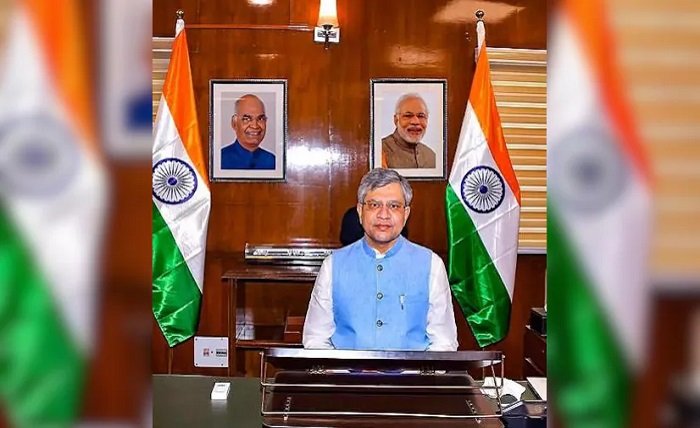Ashwini Vaishnaw: A Visionary Leader Transforming India’s Digital and Railway Sectors

Early Life and Education of Ashwini Vaishnaw
Ashwini Vaishnaw, a prominent figure in Indian politics and administration, has a fascinating early life that shaped his future leadership. Born on July 18, 1970, in Jodhpur, Rajasthan, Ashwini Vaishnaw displayed an innate inclination towards academics and public service from a young age. His keen interest in engineering led him to pursue a degree in Electronics and Communications from MBM Engineering College, affiliated with JNVU, Jodhpur.
The educational journey of Ashwini Vaishnaw didn’t stop there. His determination and academic prowess earned him a coveted spot in the Indian Institute of Technology (IIT) Kanpur for further studies. This foundation helped Ashwini Vaishnaw prepare for one of the most challenging exams in India—the Civil Services Examination. He cracked it and joined the Indian Administrative Service (IAS) in 1994, Odisha cadre, where his impactful career began.
Ashwini Vaishnaw’s educational background is a testament to his technical insight and commitment to excellence, traits that would later define his roles as a policymaker. With a unique blend of engineering and administration, Ashwini Vaishnaw is a rare gem in India’s political landscape.
Ashwini Vaishnaw’s IAS Career and Bureaucratic Achievements
Ashwini Vaishnaw began his illustrious IAS career by serving in various capacities across Odisha. His early assignments as a District Collector in Balasore and Cuttack were marked by efficiency and innovative governance. Ashwini Vaishnaw was particularly appreciated for his work during the 1999 Super Cyclone that devastated Odisha. His efforts in disaster management and relief distribution earned him national recognition.
In the bureaucratic world, Ashwini Vaishnaw soon became known for his tech-savvy governance and data-driven decision-making. His contributions as a policy adviser went beyond the state level when he moved to central government roles. Notably, Ashwini Vaishnaw served in the Prime Minister’s Office during Atal Bihari Vajpayee’s tenure, further solidifying his credentials in strategic planning and technology policy.
Ashwini Vaishnaw also worked closely with various departments including Information Technology and Infrastructure, laying the groundwork for future innovations. His journey from a district-level officer to a central administrator showcases Ashwini Vaishnaw’s versatility and vision for a digitally empowered India.
Ashwini Vaishnaw’s Corporate Experience and Global Exposure
After his successful stint in the IAS, Ashwini Vaishnaw transitioned to the private sector, an unusual move that added another dimension to his profile. He earned an MBA from Wharton School, University of Pennsylvania, one of the world’s leading business schools. This international exposure allowed Ashwini Vaishnaw to gain insights into global business practices and economic models.
In the corporate world, Ashwini Vaishnaw worked with leading firms like GE Transportation and Siemens. These roles were instrumental in shaping his understanding of large-scale infrastructure projects, supply chain management, and technology implementation. Ashwini Vaishnaw’s corporate experience became a strong pillar when he later took charge of India’s technology and transportation ministries.
The time spent abroad and in corporate circles gave Ashwini Vaishnaw a broader perspective on governance, efficiency, and innovation. His unique combination of public and private sector experience is rare in Indian politics, making Ashwini Vaishnaw a standout leader.
Ashwini Vaishnaw’s Political Entry and Rajya Sabha Nomination
Ashwini Vaishnaw made his formal entry into politics in 2019 when he was elected to the Rajya Sabha from Odisha with the backing of the BJP and Biju Janata Dal (BJD). His nomination was widely appreciated across party lines, showcasing Ashwini Vaishnaw’s credibility and non-partisan image.
Soon after joining politics, Ashwini Vaishnaw was given significant responsibilities, owing to his impressive track record. His first few speeches in Parliament highlighted key areas such as digital infrastructure, data privacy, and public sector innovation—subjects close to Ashwini Vaishnaw’s expertise.
Ashwini Vaishnaw’s appointment to Parliament marked the beginning of a new era of technocratic governance in India. His nomination symbolized the government’s intent to bring skilled professionals into the political mainstream. The Rajya Sabha induction of Ashwini Vaishnaw brought a fresh, reform-oriented mindset to national policy debates.
Ashwini Vaishnaw as Union Minister: Railways, IT, and Communications
In July 2021, Ashwini Vaishnaw was appointed as the Union Minister for Railways, Electronics & Information Technology, and Communications—a rare combination of portfolios that reflects his multi-disciplinary strength. As Railway Minister, Ashwini Vaishnaw initiated several transformative projects like the modernization of railway stations, introduction of Vande Bharat trains, and emphasis on safety and punctuality.
Under Ashwini Vaishnaw’s leadership, Indian Railways saw a digital revolution with the implementation of AI-based systems for predictive maintenance and ticketing automation. In the IT and Communications Ministry, Ashwini Vaishnaw played a vital role in the rollout of 5G services, strengthening cybersecurity, and expanding internet access in rural India.
Ashwini Vaishnaw’s role as a minister is marked by swift decisions, clear priorities, and people-centric governance. His ability to balance three demanding ministries has made Ashwini Vaishnaw a trusted name in the Modi government’s cabinet.
Key Reforms and Projects Led by Ashwini Vaishnaw
Ashwini Vaishnaw has spearheaded several key reforms that have had a long-term impact on the Indian economy and infrastructure. One of the most notable among them is the “PM Gati Shakti” initiative, which aims to integrate multi-modal infrastructure planning across the country. Ashwini Vaishnaw has ensured that railway expansion and digital infrastructure are key pillars of this mission.
In the telecom sector, Ashwini Vaishnaw introduced reforms to attract investment, reduce regulatory burden, and facilitate ease of doing business. He was instrumental in the successful spectrum auctions for 5G technology and the push for indigenously developed telecom equipment.
Cybersecurity is another area where Ashwini Vaishnaw has made substantial progress. Under his leadership, India has enhanced its CERT-In (Computer Emergency Response Team) capabilities and issued guidelines for responsible digital behavior. These reforms reflect Ashwini Vaishnaw’s tech-forward and citizen-centric approach to policy.
Public Image, Awards, and Legacy of Ashwini Vaishnaw
Ashwini Vaishnaw enjoys a clean and efficient image among both the public and policymakers. Known for his humility and data-driven approach, Ashwini Vaishnaw is often seen as a role model for aspiring technocrats in India. His soft-spoken demeanor belies the bold reforms and decisions he champions behind the scenes.
The contributions of Ashwini Vaishnaw have been recognized through multiple awards and accolades. From bureaucratic circles to tech forums, Ashwini Vaishnaw’s speeches and projects are widely referenced as case studies in effective governance. His public image is further strengthened by his active engagement with the media and transparency in communication.
Ashwini Vaishnaw’s legacy is still being written, but it’s already clear that he represents the new face of Indian governance—intelligent, efficient, and grounded. Whether it’s transforming the Indian Railways or building a robust digital India, Ashwini Vaishnaw’s impact is both visible and enduring.
Conclusion
Ashwini Vaishnaw embodies the rare combination of technical expertise, administrative experience, and political leadership. His journey from a humble background to becoming one of the most respected ministers in India is a story of dedication, learning, and vision. As India moves forward with its ambitious goals in digitalization, transportation, and communication, Ashwini Vaishnaw’s leadership remains crucial. With reforms that are future-proof and citizen-first, Ashwini Vaishnaw continues to redefine governance in the 21st century.
FAQs
1. Who is Ashwini Vaishnaw and what is his background?
Ashwini Vaishnaw is an Indian politician, engineer, and former IAS officer, currently serving as the Union Minister for Railways, IT, and Communications.
2. What are Ashwini Vaishnaw’s major achievements as a minister?
Ashwini Vaishnaw has led the modernization of Indian Railways, the rollout of 5G, reforms in telecom, and improved cybersecurity infrastructure.
3. What was Ashwini Vaishnaw’s role in the corporate sector?
Ashwini Vaishnaw worked with GE and Siemens, gaining corporate experience in global project execution and infrastructure management.
4. How did Ashwini Vaishnaw enter politics?
Ashwini Vaishnaw entered politics in 2019 through Rajya Sabha, with support from BJP and BJD, and quickly rose to become a cabinet minister.
5. What makes Ashwini Vaishnaw different from other ministers?
Ashwini Vaishnaw stands out due to his unique blend of technical knowledge, administrative experience, and corporate exposure, making him a versatile leader.





